Summer School is just around the corner! Registration opens March 15, so take a peek at all the courses the music department will be offering this summer!
Session 1
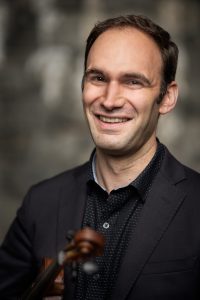
MUSC 112: Richard Luby International Violin Symposium
Associate Professor Nicholas DiEugenio, director
May 17 – 23 (IN-PERSON WITH REMOTE OPTION)
The Luby Violin Symposium is a one-week immersion course for advanced violinists within the context of a supportive and nurturing atmosphere. This year’s faculty members include Fabian Lopez (UNCG), Kevin Lawrence (UNCSA), Shannon Thomas (Florida State), Aaron Berofsky (UMICH), and Nicholas DiEugenio (UNC-CH). This year’s guest artist is violinist Tom Chiu, composer and founder of the Flux Quartet and a former collaborator with free jazz legend Ornette Coleman. If you are interested in taking the course, please contact Dr. DiEugenio at nwd@unc.edu or fill out this info form.

MUSC 188: Introduction to Women and Music (WGST 188)
Meg Orita, Ph.D. Candidate
Monday – Friday, 1:15 – 2:45 PM (REMOTE)
The role of women in performance, composition, patronage, and the music business across a wide range of repertories.
This course fulfills these General Education requirements:
- Visual and Performing Arts (VP)
- Global Issues (GL)
- North Atlantic World (NA)
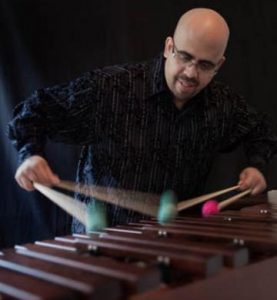
MUSC 145: Introduction to Jazz
Associate Professor Juan Álamo
Monday – Thursday, 3:00 – 5:00 PM (REMOTE)
Despite of its relatively short history, Jazz is arguably one of the most innovative, creative, influential, diverse and important musical style of the 20th century. However, what exactly is Jazz? Is it folk music, is it popular music or is it an art form? Where, how and by who was jazz developed? What are the musical characteristics that define jazz and difference it from other musical styles? How much has jazz changed over the past 100 years? What is the role, importance and relevance of jazz in our current society? What is the future of Jazz? These as well as many other questions will guide our discussion about the origins, developments and contribution of jazz music and its artists to the humankind in the past 100 years. Thus, the main goal of this course is to study this music through the context of the great jazz artists and the various/different jazz styles of the past 100 years. We will learn about jazz’s historical, social and cultural significance by listening to, reading about and researching the artists, instruments and various jazz styles such as Dixieland, Swing, Bebop, Cool Jazz, Hard Bop, Avant-Garde, Latin Jazz and the Jazz fusion of the 1970s among others.
No prior knowledge of music theory or music history is expected or needed, as the classroom subject and text book will help students to learn and understand the essential musical and historical concepts that will facilitate a greater understanding and appreciation of jazz.
Having participated in this course you will be able to do the following:
- Identify salient musical features that define and distinguish the leading artists and styles of Jazz.
- Explain how culture, society, politics, and history inform the meaning and sound of this music.
- Synthesize the materials learned in this class into coherent and factually accurate discussions of Jazz history.
Required Text: Scott Deveaux and Gary Giddins. Jazz: Essential Listening. New York. W. W. Norton & Company, 2011.
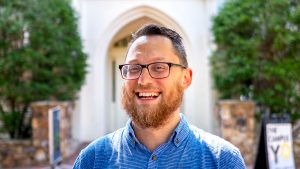
MUSC 156: A History of Electronic Music
Michael Levine, Ph.D. Candidate
Monday – Friday, 11:30 AM – 1:00 PM (IN-PERSON/REMOTE)
Learn the history of electronic music by creating it yourself. This course spans a history of electronic music, from its earliest formation as experiments conducted at the turn of the 20th century, to EDM and sample-based musical practices in the 21st century. The course will include selected listening, readings, and weekly compositional assignments that reflect the sounds and structures we will encounter throughout the semester. The course will utilize the Beat Lab and other classroom resources.

MUSC 164/ASIA 164: Music of South Asia
John Caldwell, Ph.D. Candidate
Mondays, 6:00 – 8:35 PM (REMOTE ONLY, MOSTLY ASYNCHRONOUS)
This course provides a comprehensive overview of the music of South Asia, focusing on India, Pakistan, and Bangladesh. The entire spectrum of musical genres will be covered.
This course fulfills these General Educations requirements:
- Visual and Performing Arts (VP)
- Beyond the North Atlantic World (BN)
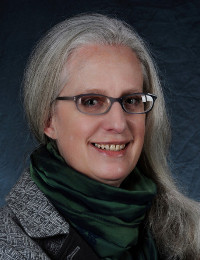
MUSC251: Studies in Medieval and Early Modern Music
Associate Professor Anne MacNeil
ASYNCHRONOUS
This course focuses is on the Iberian Peninsula, Occitania, and the Basque region during the time of the Crusades – roughly 700 to 1492 – when Moors ruled in Western Europe. History of the Crusades has received a lot of scholarly and artistic attention recently, with a particular focus on including the history of Arabic and African cultures in Western Europe and on opening up a diversity of scholarly perspectives. This course recognizes the selective representation of cultures in historical narratives. Its goals are to empower students to interrogate sources of information and to write reparative histories of the music and culture of this region and time that recognize this ethnic diversity. Students will learn how to create ArcGIS StoryMaps for their reparative history projects.
This course fulfills these General Education Requirements:
- Visual & Performing Arts (VP)
- The World Before 1750 (WB)
- IAAR-SLATE initiative
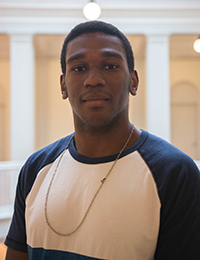
MUSC 286: Music and the Caribbean
Aldwynn Hogg, Jr., Ph.D. Candidate
Monday – Friday, 9:45 – 11:15 AM (REMOTE)
This course is a critical study of the musical cultures of the Caribbean and the global Caribbean diaspora. Focusing on routes rather than roots (origins), in this course we will study the intersections of music and multiple domains of human thought and activity (e.g. politics, religion and spirituality, festivals and parties, dance, environmentalism) throughout the Caribbean.
Session 2
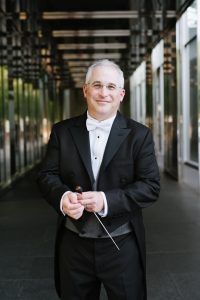
MUSC 121: Fundamentals of Music
Professor Evan Feldman
ONLINE (This hybrid course will have weekly recitations via Zoom (times are TBD based on student schedules), along with asynchronous but interactive video lectures.)
This course covers the musical building blocks of pitch, melody, rhythm, meter, harmony, and form, along with the notation system used in Western art music. The course will be helpful for students who wish to read and write conventional musical notation; to understand the concepts and systems behind music they play, sing, and hear; and to prepare for further academic studies in music theory, composition, or performance.
We will be exploring connections between sounds, written notation, and very abstract concepts. In a typical classroom, there is constant aural reinforcement of these ideas, and there is group participation in the acquisition of these skills. Students clap together as they learn rhythms, sing together as they study melodies, and gain the tactile experience of playing intervals or chords on a piano. In an online course format, you will still have all of the same resources. The aural reinforcement will be provided through interactive videos and sound files; the discussion forums allow you to interact with your classmates; the assignments and exercises will encourage you to physically engage with the music as you learn new skills; and web-based drills will let you practice your new skills with instant feedback.
Each week there will be a required recitation (to be scheduled based on student schedules) plus asynchronous on-your-own work with interactive video lectures (interactive in the sense that you will be encouraged to sing and tap along).
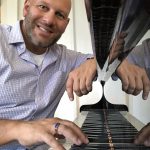
MUSC143: Introduction to Rock Music
Michael Carlson, Ph.D. Candidate
Monday – Friday, 1:15 – 2:45 PM (REMOTE)
This course is designed to provide students with an understanding of the history and development of rock music and its influence on the broader culture of America from the 1950s until today. Students will explore this music by studying its stylistic traits and considering its historical context and social significance. This course will also allow students to develop listening skills and advance musical vocabulary, enabling them to discuss the music they hear in daily life in a way that is clear and acute.
This course fulfills these General Education requirements:
- Visual and Performing Arts (VP)
- U.S. Diversity (US)
MUSC 145: Introduction to Jazz
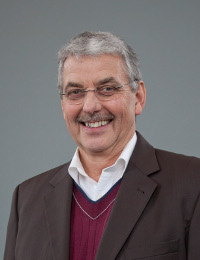
Professor Donald Oehler
Monday – Friday, 9:45 – 11:15 AM (IN-PERSON WITH REMOTE OPTION)
Curious to know how we got from point A to point C (Via point B)? Join me this summer in late June and let’s find out. Check out the links.
1931 Point A: https://www.youtube.com/watch?v=1bKstQNsQKc
1952 Point B: https://www.youtube.com/watch?v=r-6Pb8W_Qes
2010 Point C: https://www.youtube.com/watch?v=agyor0ksmqw
A survey of jazz music: An introduction to critical listening in jazz. A blend of listening to jazz, discussion of music materials with historical and cultural contexts. No musical background necessary, just open ears.
Three credit hours. Satisfies the following General Education requirements: Visual and Performing Arts (VP), U.S. diversity (US), North Atlantic World (NA).
Course goals:
- Develop a basic understanding of the elements of jazz music.
- Develop a basic understanding of the time line (history) of jazz music.
- Develop an understanding of the significance of jazz music in the greater twentieth and twenty first century musical scene.
- Develop a fundamental ability to discuss and critique jazz music performances using appropriate vocabulary and jazz terminology.
- Develop aa daily personal listening log.
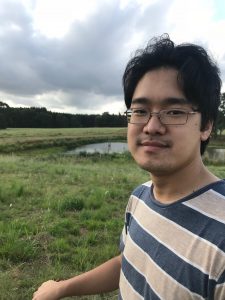
MUSC147: Introduction to the Music of the Americas
Eduardo Sato, Third Year Graduate Student
Monday – Friday, 11:30 AM – 1:00 PM (REMOTE)
This course offers an introduction to Latin American music within broad cultural, political and historical perspectives. We will discuss the large diversity of musical practices from the American continent—covering genres such as samba, tango, salsa and reggaeton—in relation to the sociopolitical conditions that allowed different communities to express themselves through sounds and music. By discussing the entanglement of aesthetics and society, we will dive into the ways in which music allowed for the formation of cultural identities across the region, from nationalist discourses centered on governments to resistance practices sounded by indigenous groups. To think critically about the musical performances and its contexts, we will discuss concepts such as colonialism, diaspora, migration, and globalization. Students can expect to become familiar with basic listening skills. There are no prerequisites.
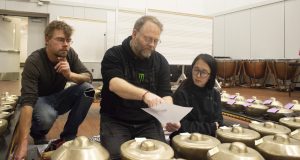
MUSC 240/ASIA 240: Performance in Southeast Asia: Gongs, Punks, and Shadow Plays
John Caldwell, Ph.D. Candidate
Mondays, 6:00 – 8:35 PM (REMOTE ONLY, MOSTLY ASYNCHRONOUS)
The study and comparison of contemporary Southeast Asian performance genres (music, theatre, dance, ritual) in historical and cultural contexts.
This course fulfills these General Educations requirements:
- Beyond the North Atlantic World (BN)
- Global Issues (GL)

The Carolina Hip Hop Institute
Professor Mark Katz, director
June 21 – July 3 (REMOTE)
The Carolina Hip Hop Institute is an 11-day program that immerses students into the art and culture of hip hop. Students choose from one of three courses: MUSC 156 (Beat Making Lab), MUSC 157 (Rap Lab) and MUSC 286 (Hip Hop Dance) and earn three hours of college credit to satisfy VP (visual and performing arts) requirements. Instructors are experienced, professional artist-educators who will work with students to develop their artistry as well as foster skills in entrepreneurship and conflict transformation through hip hop. Each class day has two parts: a focused session with individual teachers and, following a dinner break, jam sessions and discussions among the three classes. No audition is required, but students should be committed to learning or developing skills in rap, beatmaking, or dance; some experience is helpful but not required. The program will take place June 21 to July 3, 2021 (inclusive of Saturday, but with Sunday, June 30, off), meeting from 3:00 to 7:30 p.m. The program draws its instructors, structure, and philosophy from the Next Level (https://www.nextlevel-usa.org/) international hip-hop exchange program, which was developed at UNC and has conducted workshops in 30 countries since 2014. Please contact Prof. Mark Katz (mkatz@unc.edu) for more information.
MUSC 156 Beat Making Lab
An introductory hands-on study of the composition of electronic instrumental tracks for hip-hop and dance music. Students make beats, learn about the history and culture of the art form, and examine beat making as a case study in entrepreneurship. MUSC 156 is offered as part of The Carolina Hip Hop Institute.
MUSC 157 Rap Lab
An introductory hands-on study of the art of emceeing. Students engage in a rigorous lyricism curriculum, developing the skills to write, recite, and improvise lyrics in live and recorded settings. Students also explore the history of hip-hop culture and analyze the aesthetics of emcees from around the world. MUSC 157 is offered as part of The Carolina Hip Hop Institute.
MUSC 286 Music as Culture: Topic: Hip Hop Dance and Culture
An introductory hands-on study of the art of hip hop dance and its culture. Students will learn a variety of urban dance styles and well as study their history and culture. MUSC 286 is offered as part of The Carolina Hip Hop Institute.
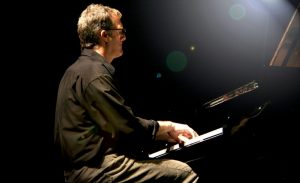
MUSC 364 The UNC Summer Jazz Program
Professor Stephen Anderson, director
June 21 – 25 (IN-PERSON WITH REMOTE OPTION)
Satisfy the Experiential Education requirement by attending the UNC Summer Jazz Workshop. This five-day course runs Monday through Friday, June 21-25, 2021, from 9:30 a.m. to 9 p.m. daily (with breaks) and applies to Summer Session II (though the course dates and daily schedule are different than other courses offered during Summer Session II).
Students have their choice to attend the workshop in one of two ways:
- (Non-performance) – Students may opt to enroll in the Jazz History/Music Journalism through social media class at the workshop where they study jazz history and learn basic music skills. They will watch videos of jazz concerts and learn how to write reviews using blogs and other forms of social media. These students are not required to perform during the workshop or to have any prior musical training.
- (Performance) – Students may opt to enroll to perform on their instrument while studying jazz theory, jazz improvisation, participating in jazz combos, masterclasses with guest artists, and while taking group lessons on their instruments. At the close of the week, student performers will participate in the Final Friday Student Concert for the family members of the participants.
APPLICATIONS FOR THE WORKSHOP MAY BE SUBMITTED HERE.
LEARN MORE ABOUT MUSC 364 UNC SUMMER JAZZ WORKSHOP AT https://music.unc.edu/summerjazzworkshop.
For more information contact, Dr. Stephen Anderson at anderssr@email.unc.edu.
